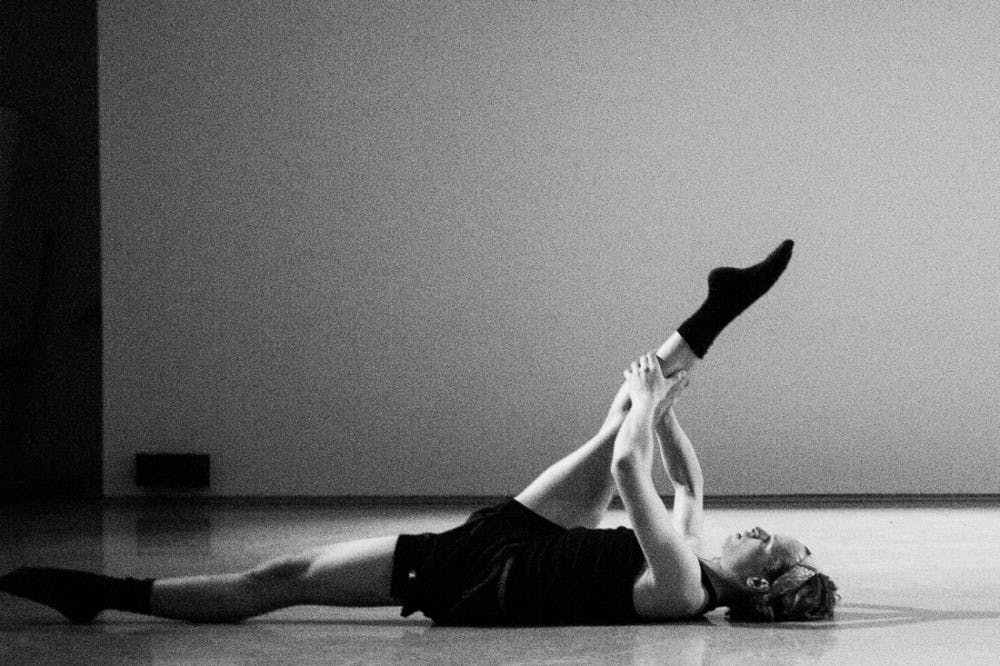Alexander Quetell ’17 is an art and archaeology concentrator from Rochester, Mich. He is a member of the diSiac Dance Company and has been holding movement workshops every Friday night this year, open to the whole University community. The Daily Princetonian sat down with Quetell to discuss the inspiration behind these workshops, as well as the power of movement and dance.
The Daily Princetonian: What drew you to dance initially?
Alexander Quetell: The corny story that I tell people is that when I was three years old, I saw my sister taking dance classes. I was in diapers at that time, and got so fascinated that I stepped out of my diapers to dance with her. Since then, I have always loved moving and dancing.
DP: Why is movement and dance important to you?
AQ: I believe in the power that dance has to shape our world. The power of physicality hints at the amount of knowledge hidden in our flesh, bodies and minds.
DP: What inspired you to start these workshops?
AQ: I started these workshops partly out of self-motivation because of my interest in learning how to be a better teacher. Teaching is a common post-career path for performers. These workshops have provided me with the opportunity to learn how to teach, and to communicate ideas in movement. Furthermore, I enjoy sharing my dance experience over the summer with the Princeton community.
DP: How do these workshops run?

AQ: None of these classes are the same because they are experimentally driven. We talk often during some of them, and don’t talk at all in others. I lead some classes, while other times I let other people lead. I try to make sure that the workshops aren’t too rigid and theoretical because sometimes, I feel like teachers that get too intellectual about movement propel you into a situation that is not adept at tackling what the conversation is about.
DP: Do you define movement and dance differently?
AQ: Movement is the groundwork for dance. Dance has heavy connotations and it tends to put a lot of people off, and it can be alienating for some people despite how ingrained it is in our social and cultural lives. To simplify it, while dance embodies the artistic and cultural movement, it’s more about the mechanics of things.
DP: Is it necessary for people to attend these workshops to understand the importance of movement?

AQ: People do not need to attend these workshops, but it is not until you come to this class and experience it collectively with the rest of us that you’ll be able to realize the pertinence of movement. I think there is an ethos to showing up and moving that can be applied to a variety of situations. Not until movement really rests with us in the body, because we carry so much in us, can we truly recognize its significance. Everyone carries around their phenotype with them. Everyone sees you and can hone into your gender, race, or even your abilities. But underneath these appearances are layers and layers that make up the rest of your character. Movement is the setting that permits these layers to roam free. It is hard to understand this concept without engaging in movement.
DP: How are your workshops linked with the concept of wellness?
AQ: The body is the vessel for all your experiences in the world. I strongly believe that learning about any sort of movement vocabulary is a step towards self-healing, and towards a way of living that can lead to a healthier body, mind, and experience of the world. It is important to note that there are a lot of things that come up in movement that don’t come up in conversations with psychologists, at least in my experience. Many things often bubble up inside of you that you can experience through physicality, which enables you to explore your hidden emotions and allow them to come to the surface. I can’t tell you the number of times that I’ve become overwhelmed by sensations while engaging in movement, but in a liberating way. That’s what keeps me dancing and engaged in this work.








